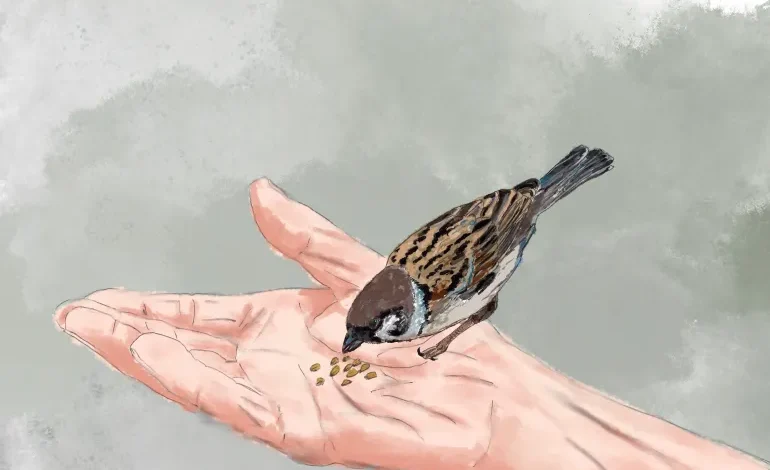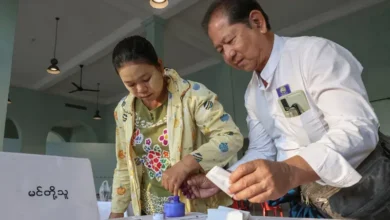‘A tough little sparrow’: How a ring helped me grieve my mother

At the tail-end of a social media distraction scroll, I stared at my computer, transfixed. There on my Instagram feed was the perfect signet ring: atop a gold band rested the engraved emblem of a sparrow perched on a branch looking blissfully over its shoulder. Its quiet contentment stirred in me a sense of hope I hadn’t felt in quite a while. I wanted that ring. I needed that ring.
The jeweller had posted a picture of it on their page nearly a year and a half after I’d designed it and brought it home. Over the next few days, like a teenager, I found myself returning to the post to see how many hearts it had racked up. I felt embarrassingly proud that my little sparrow was faring well.
But amidst the oohs and ahs were people asking to purchase it – and the jeweller instructing them to contact the shop for a quote. I was astounded. This was my ring. With my design. To honour my mother. Could the jeweller legally offer her to the world? If so, was I prepared to share my mom?
I’d long wanted a pinky signet ring. They’re so English. My parents grew up in London during World War II; I have dual citizenship and fancy myself more a Brit than an American, especially as of late.
My mother died of thyroid cancer in her late eighties, but her body had been giving out on her in so many ways for so long. Her last decade had been hard, though she rarely let on.
After her death, my dad, niece, and I went to London to sprinkle her ashes on her mother’s grave. While there, I wanted to find a pinky ring as a remembrance to her.
A month before we were set to leave, I scouted out stores online we could dash into. I wasn’t expecting much. But up popped one link and my breath caught short. Each ring was handmade and engraved by master craftsmen who’d honed their ancient trade the old school way by apprenticeship. The jewellery was elegant, timeless, substantive; I could conjure the weight of one on my hand and knew this was my ring.
My mom and I had had a tender but complicated relationship. When I was five or six, my mother – red lipstick, Chanel No 5, diamond studs – let me know that the reason she’d given birth to me was so that she would never be alone.
“We’ll always be best friends,” she’d said firmly, kneeling beside me.
“What if I let you down?” I queried, my eyes, as mom liked to say, as big as saucers.
“Oh, love,” she said, “you could never let me down.”
As I grew older, her refrain transfigured slightly into, “Isn’t our relationship wonderful? So many mothers and daughters don’t have this.”
What it was we had wasn’t clear, yet questioning it risked defiling my whole purpose. It wasn’t until I was much older that I realised how angry this agreement made me – as if I needed to earn my mother’s attention by bestowing attention upon her.
For much of my life, I kept this simmering fury from my conscious mind, but I realise now it informed nearly all our interactions. Whether conjured or genuinely present, I found the expectations draining. I felt my mom wanted too much from me, wanted to be part of my life in a way that was too intimate for my comfort level, wanted to tell me things about her life, including her relationship with my dad, that as her daughter I didn’t want to hear.










